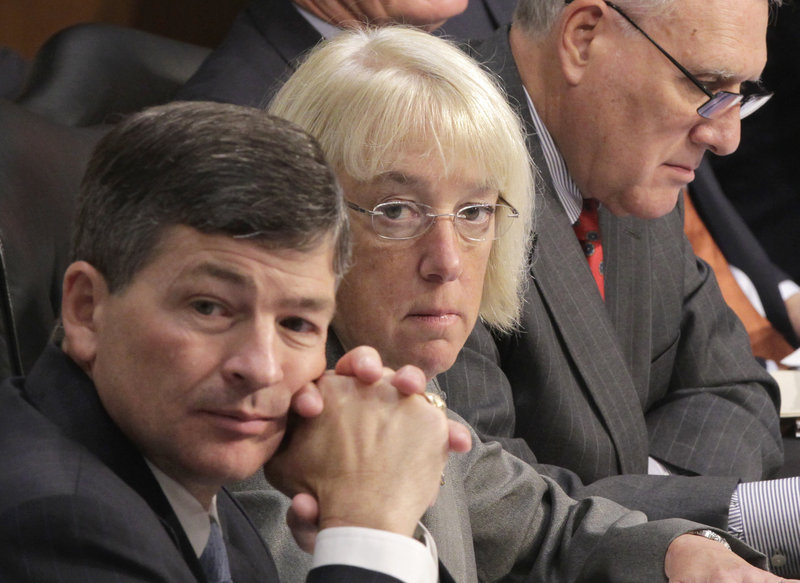Congressional Budget Office Director Douglas Elmendorf was speaking to the deficit-reduction “supercommittee,” but he might have been speaking to us all.
The United States cannot afford to continue on the current path of providing government services and a social safety net for the elderly while keeping taxes low. Something, Elmendorf testified, will have to give.
The country is headed into uncharted territory, Elmendorf told the committee. It cannot continue to spend at current levels: “Attaining a sustainable budget for the federal government will require the United States to deviate from the policies of the last 40 years.”
There is no magic cure, Elmendorf said. The government could not, for instance, expect to save large amounts of money by cracking down on fraud, as suggested by two members of the committee. There is no evidence that fraud is that extensive. Real cuts to programs would mean real cuts to services for people who need them.
Committee members took in the information and, at least at this point, are sticking to partisan positions when discussing how to respond to Elmendorf’s analysis. But both sides have weaknesses.
Raising taxes to fix the debt problem would slow down an already sluggish economic recovery, but cutting programs is not an easier solution. The U.S. Census reports that poverty in the nation has hit levels not seen since the 1950s, and inflation-adjusted wages have dropped to 1997 levels.
Unemployment is stubbornly clinging to just over 9 percent and it is not expected to improve in the short term. Cutting programs for people who need help just at the time more people need them will not be a popular approach in some quarters.
This is the predicament for the supercommittee, but its members should not be expected to solve it for us. This basic question will stay with us for the rest of this year and will likely be the central issue of the 2012 election campaign to determine which party will control Congress and the White House.
It will be up to voters to decide the best approach to controlling the debt. But there should be agreement on one thing: What is now in place doesn’t work, and something will have to change.
Copy the Story Link
Send questions/comments to the editors.



Success. Please wait for the page to reload. If the page does not reload within 5 seconds, please refresh the page.
Enter your email and password to access comments.
Hi, to comment on stories you must . This profile is in addition to your subscription and website login.
Already have a commenting profile? .
Invalid username/password.
Please check your email to confirm and complete your registration.
Only subscribers are eligible to post comments. Please subscribe or login first for digital access. Here’s why.
Use the form below to reset your password. When you've submitted your account email, we will send an email with a reset code.